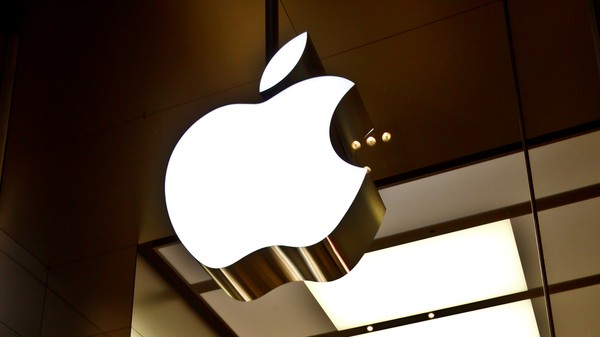
Late this afternoon, Apple announced another blow-out quarter and closed fiscal 2012, ending Tim Cook's first full four quarters as CEO. The challenge ahead is to maintain or to even extend momentum as cofounder Steve Jobs' influence over strategy and product development grows more distant. He died a year ago last month.
On Wednesday, financial analysts got an unexpected October surprise, and not iPad mini. Cook revealed that Apple sold its 100 millionth iPad about two weeks earlier. Problem: By that reckoning most analysts had over-estimated the tablet's quarter. Philip Elmer-DeWitt sums up the impact: "As a group, these analysts lowered their iPad estimates an average of 2.67 million units. Most also lowered their revenue and earnings estimates, an average of $1.26 billion and $0.31, respectively". If you're an investor wondering why Apple shares declined most of the day ahead of earnings, there's a reason.
For fiscal fourth quarter, Apple reported $36 billion revenue and net profits of 8.2 billion, or $8.67 a share. A year earlier, the company reported revenue of $28.27 billion and $6.62 billion net quarterly profit, or $7.05 per share. Apple announced fiscal Q4 results after the market closed today.
Three months ago, Apple forecast $34 billion in revenue for fiscal 2012 fourth quarter, with earnings per share of $7.65. Analyst average estimates were higher than Apple guidance: $35.8 billion revenue and $8.75 earnings per share. So Apple squeaked by reduced revenue estimates by missed consensus on earnings per share.
Apple shipped 14 million iPads, 26.9 million iPhones, 5.3 million iPods and 4.9 million Macs. Wall Street expected about 15 million iPads, 26 million, iPhones 5.7 million iPods and 4.8 million Macs.
Gross margins nudged down to 40 percent from 40.3 percent a year earlier. International sales declined to 60 percent from 63 percent.
Apple announced another dividend, $2.65 per share, payable November 15.
"Looking ahead to the first fiscal quarter of 2013, we expect revenue of about $52 billion and diluted earnings per share of about $11.75", Peter Oppenheimer, Apple CFO, says.
Challenge of Leadership
Two days ago, Apple unveiled the new iPad mini and introduced iPad 4. Pre-orders start tomorrow. The smaller tablet reveals some of the differences between Cook's leadership versus his predecessor. Supply chain simplicity defined Apple for more than a decade, but that era is over. The mini expands base iPad configurations from seven to 14. However, when accounting for colors and carrier-specific models, which adds Sprint to AT&T and Verizon, Apple now offers 54 different iPad configurations. Imagine managing that supply chain this Christmas. I'm surprised Wall Street analysts don't fuss more about this kind of complexity and what it means for sales -- lost ones for a high-demand product -- and toll on gross margins.
iPad mini poses some risk to sales of the larger model, because of lower prices (starting at $329). The move marks another difference in Cook's leadership, as he seeks to position Apple to lead the so-called post-PC era and to keep Apple platforms vital.
Challenges surround him. According to Pew, Americans buy more Android tablets than ever before, dramatically chopping iPad's huge market share lead in just one year. Based on an August survey, iPad market share slipped to 52 percent from 81 percent a year earlier.
Twenty-five percent of US adults have access to a tablet, according to Pew (22 percent as owners, 3 percent sharing with someone else in the household). Sixty-eight percent got their tablet within the last year, and 32 percent during 2012.
Daily Android activations now total 1.3 million, up from 900,000 in June, according to Google. At that run rate, Android device sales, based on activations, work out to 117 million every 90 days. Looking ahead, IHS iSuppli now predicts that cumulative Android smartphone shipments will reach 1 billion next year, but iOS not until 2015. Cumulative sales passed iOS devices during summer -- 500 million.
Slowing PC market also weighs on Apple. Calendar third quarter is typically strong because of back-to-school sales. Not this year. Global PC shipments fell 8.6 percent from Q3 20122 , according to IDC, surpassing the minus 3.8 percent forecast. Gartner estimates 8.3 percent decline. The United States, a region recently in love with tablets, is in free fall, with shipments down 13.8 percent by Gartner's reckoning and 12.4 percent according to IDC. Apple typically avoids the gravity pulling down the entire sector, as it did following the 2008-09 recession. Q3 is typically one of Apple's best, given the Mac's popularity among schools. But shipments in the United States fell 6.1 percent or 7 percent, respectively, according to Gartner or IDC.
Then there is Microsoft, which tomorrow launches Windows 8 and RT, which are primed for touch and tablets, and the Surface slate. As Cook surveys the computing landscape moving into fiscal 2013, the decisions he makes now will determine Apple's future as early connected-device platform leader.
MORE TO COME
Photo Credit: nui7711/Shutterstock

